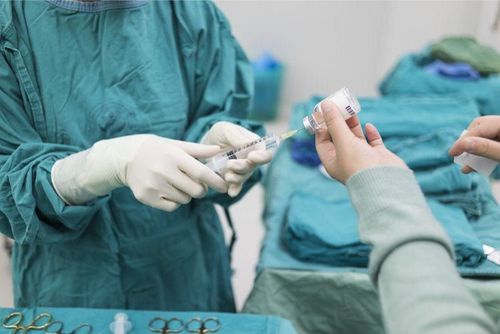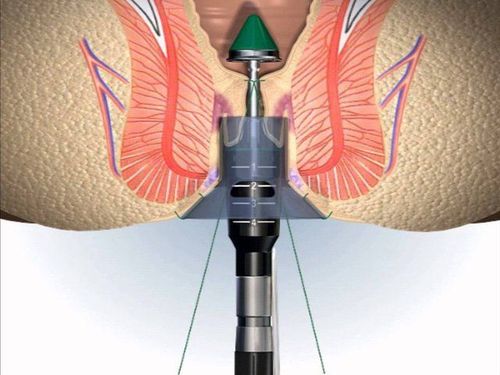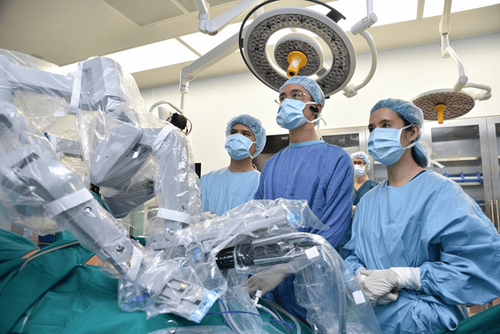This is an automatically translated article.
The article was professionally consulted by Specialist Doctor I Nguyen Xuan Tinh - Anesthesiologist - Resuscitation - General Surgery Department - Vinmec Phu Quoc International General HospitalThere are many potential side effects associated with the use of anesthetics in surgery and procedures, ranging from mild to even fatal. However, most side effects of anesthesia are mild and temporary. Although there are some more serious effects to be aware of and to be prepared for, such as complications during anesthesia, the patient therefore requires neurological monitoring during and after anesthesia.
1. What is a neurological complication in anaesthesia?
Neurological complications during anaesthesia can be common symptoms such as feeling drowsy, mild confusion or headache after general anaesthesia. Sometimes these sensations can last for a few days or weeks after surgery, but that doesn't mean the person's brain has been damaged.
Brain damage from anesthesia very rarely occurs because brain cells are dead or damaged. There are many different possible causes of brain damage such as a severe head injury or a serious infection such as meningitis. However, in anesthesia, brain damage usually occurs because brain cells are deprived of oxygen with symptoms of moderate or severe brain injury including:
Convulsions Abnormal pupil dilation Inability to wake up Muscle weakness Loss of coordination Confusion Aggressive, abnormal behavior Stuttering Coma

Tế bào não bị thiếu oxy dẫn đến tổn thương não
2. Causes of nerve damage in anesthesia
There are two main reasons why a person can have brain damage during anaesthesia:
Having a stroke while under anesthesia Usually during a stroke, a blood clot blocks the blood supply to the patient. part of the brain, resulting in that part of the brain being starved of oxygen, and if the blood supply is not restored quickly, cells in that area die or become damaged.
The risk of having a stroke during surgery is higher if you are:
Older People with atherosclerosis People with a history of previous strokes People having surgery on the head, neck or heart. Stroke often occurs as a result of the combined effects of surgery and general anesthesia. A stroke can still happen up to 10 days after surgery.
Not enough oxygen to the brain Very rarely brain damage can be caused by not providing enough oxygen to the brain during surgery. The reason is that, during anesthesia, the patient was placed on a breathing tube that allows oxygen to be brought from the outside to the lungs and up to the brain.
3. What factors increase the risk of neurological complications during anesthesia?
Patients with chronic medical conditions Medical conditions such as diabetes, heart disease, lung problems or kidney problems can make anesthesia more difficult and increase the risk of death. Common medical conditions are more common as we age, and older people's ability to recover from surgery is more difficult than that of younger people.

Người lớn tuổi có nguy cơ biến chứng thần kinh cao hơn
Emergency surgery Surgery performed in an emergency has a higher risk of complications than surgery that is planned in advance. The reason is that the patient's health condition is critical and the prognosis for surgery will be more complicated.
4. What can patients do to reduce the risk of neurological complications?
Although during the surgery, the patient was anesthetized and cared for by doctors and nurses specializing in anesthesiology. From the time of pre-anesthesia and throughout the surgery, the medical team will use a number of electronic devices with screens to show vital signs of the patient such as breathing rate, heart rate, blood pressure and temperature. degree. Anesthesiologists will use this information, in conjunction with their clinical expertise, to keep the patient safe during surgery.
If surgery is performed in an emergency, it is almost impossible for the patient to prepare in advance. However, if surgery is scheduled some time in the future, there are some things you can do to reduce your risk of anesthesia-related anesthesia complications during surgery. surgery:
Quit smoking : Even if the patient stops smoking a few days before surgery can help reduce the risk Lose weight if the patient is overweight Eat well to improve nutritional status before surgery Get regular exercise to improve heart and lung function If you have chronic medical problems, such as diabetes, breathing problems or high blood pressure, make sure you These problems are well controlled before surgery. Vinmec International General Hospital currently has a full range of modern medical equipment: Anesthesia machine, emergency resuscitation facilities, monitoring equipment: ultrasound machine, monitor, PCA, Auto bolus, stimulator. The hospital also has a team of doctors and nurses with many years of experience, well-trained in Anesthesia resuscitation / pain relief treatment, modern medical equipment to help monitor and care. safe for customers. Therefore, when there are health problems, customers contact the hospital for advice and appropriate indications.
SEE MORE
Some common complications of anesthesia, anesthesia Distinguishing epidural and spinal anesthesia Anesthesia, pre-anesthesia: Things to know














